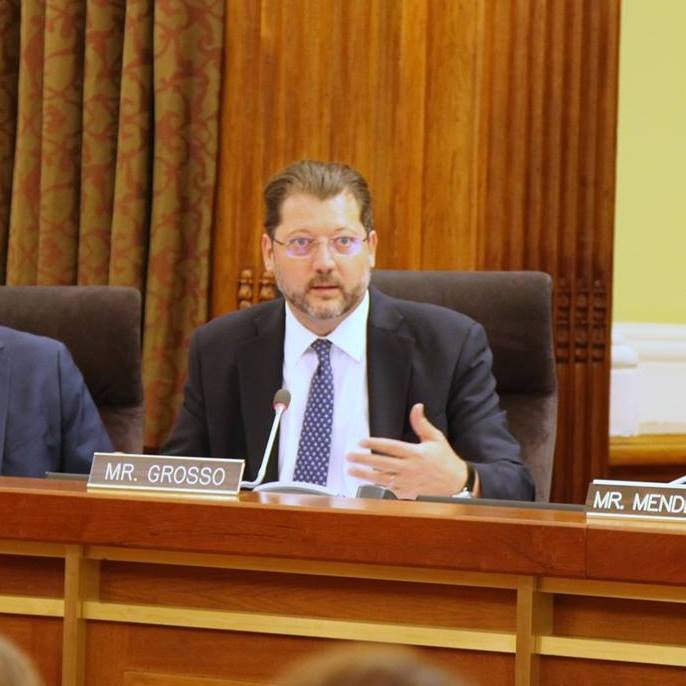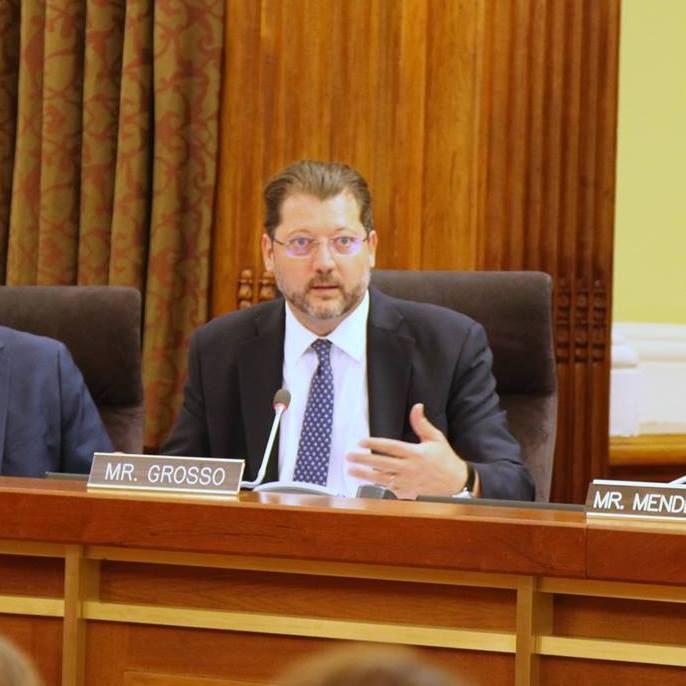[ad_1]
By George Kevin Jordan, AFRO Staff Writer
District of Columbia Council Member David Grosso pushed a revised version of his Marijuana Legalization and Regulation Act, a bill that could surge through with a Democratic House of Representatives firmly planted in Congress, officials said.
“Since D.C. voters approved initiative 71 to decriminalize recreational marijuana we have seen marijuana-related arrests plummet, representing thousands of District residents who were spared needless involvement in the judicial system,” Grosso said in a statement. “The logical next step, to continue to reduce arrests and to bring marijuana totally out of the shadows, is to set up a strong tax and regulatory system.”

The bill as summarized would accomplish many things including the following:
- Legalize the possession, consumption, display, purchasing or transporting of marijuana and marijuana-infused products for personal use, not in public, for persons over the age of 21
- Establish that possession, consumption, display, purchasing or transporting of marijuana and marijuana-infused products shall not constitute a civil or criminal offense under District law or be a basis for seizure or forfeiture of assets under District laws, for persons under the age of 21
- Amend the District of Columbia Uniform Controlled Substances Act of 1981 to decriminalize certain amounts of marijuana and marijuana-infused products for personal use; to amend the Drug Paraphernalia Act of 1982 to strike certain paraphernalia related to marijuana use from the provision
- Amend Title 25 of the District of Columbia Official Code to establish the licensing and regulation infrastructure for the production, sale, consumption, and testing of retail marijuana and retail marijuana-infused products in the District of Columbia
- Establish a dedicated marijuana fund, which shall consist of all sales tax and excise tax revenue from retail marijuana; to direct all retail marijuana license fees, penalties, forfeitures, and all other monies, income or revenue received by the Alcoholic Beverage Regulation Administration from retail marijuana-related activities;
- Establish a tax on the gross receipts of retail marijuana sales and on the first sale or transfer of unprocessed retail marijuana in the District of Columbia
Indeed, in 2014 Initiative 71 the vote to legalize marijuana in D.C. was passed by an overwhelming 70 percent of residents (115,050). The District, along with ten other states, including California, Colorado, Maine, Nevada, Michigan, Vermont, Washington, Alaska, Oregon and Massachusetts has some form of legislation on the books for recreational use of marijuana.
However, advocates have long said that laws that promote marijuana use does not necessarily translate into revenue for their respective cities and states. Comparatively, a state like Colorado to date has collected about $905 million (from 2014-2018) in combined marijuana, taxes, license and fees revenue, according to a report from the Colorado Department of Revenue.
In the meantime Grosso pointed to the current marijuana laws which have wedged many people unnecessarily into the legal system.
“The War on Drugs was a failure – it was increasing our mass incarceration problem and not helping with our drug dependency problem. Further, the data also has consistently shown that the War on Drugs has been racist in its implementation,” Grosso said. ‘It’s a racial justice issue. It’s not enough that we change these policies, we also have to proactively heal the communities most negatively impacted.”
Back in 2013 the ACLU released a report about biases and marijuana arrests. According to the document some 8 million marijuana arrest were made in the United States between 2001 and 2010, accounting for more than half of all drug arrest in the U.S. The report adds that the states spent more than $3.6 billion enforcing marijuana possession laws.
The report also states that “on average, a Black person is 3.73 times more likely to be arrested for marijuana possession than a white person, even though Blacks and whites use marijuana at similar rates.”
Grosso pointed to lower arrest numbers for marijuana since “71” was put into place.
Grosso had been pushing legislation on legalized marijuana sale since 2013, but “the new reality on Capitol HIll means that chances of D.C. legalizing marijuana sales are greater than ever,” Grosso said.
[ad_2]
Source link


